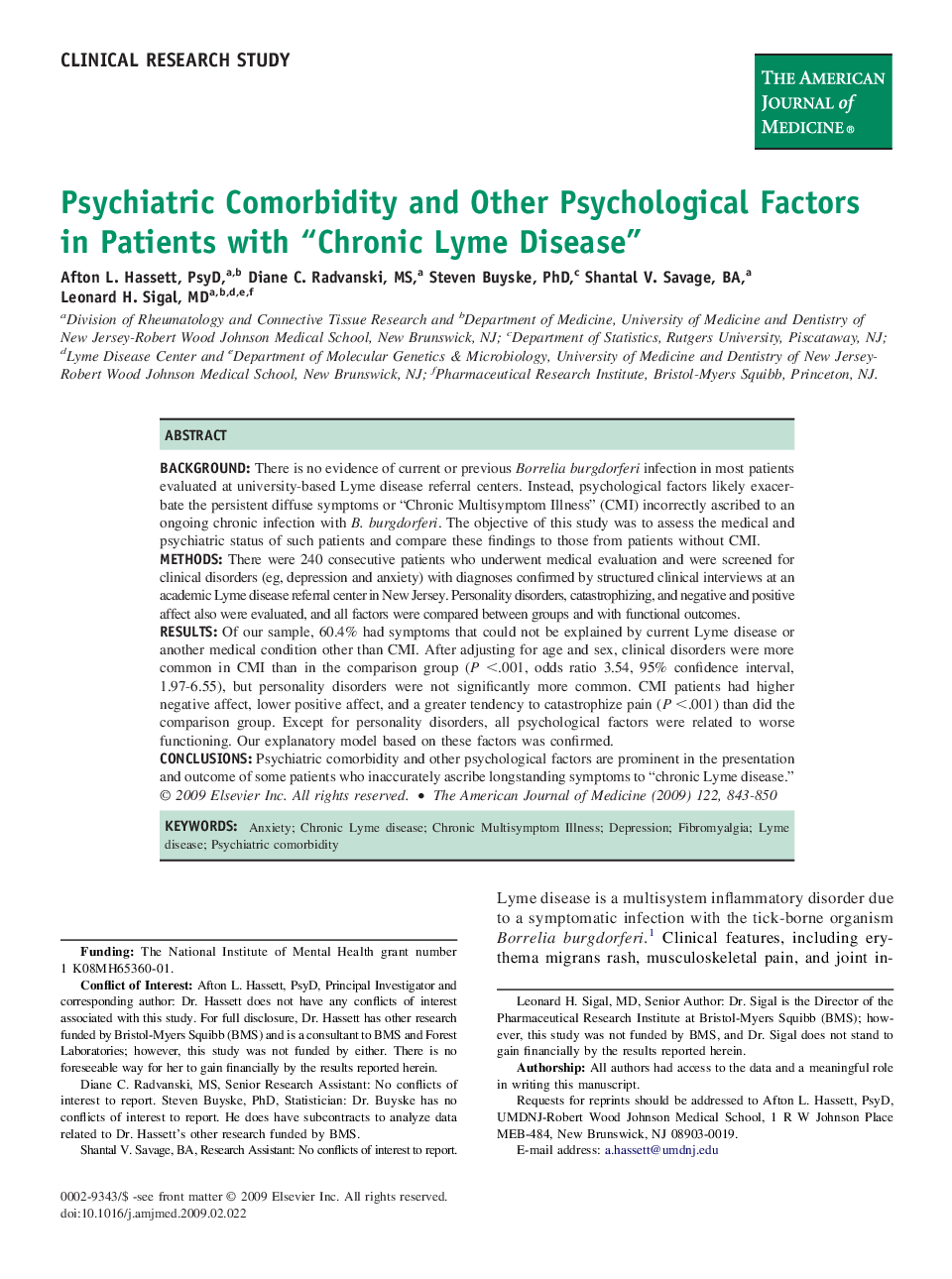| Article ID | Journal | Published Year | Pages | File Type |
|---|---|---|---|---|
| 2724384 | The American Journal of Medicine | 2009 | 8 Pages |
BackgroundThere is no evidence of current or previous Borrelia burgdorferi infection in most patients evaluated at university-based Lyme disease referral centers. Instead, psychological factors likely exacerbate the persistent diffuse symptoms or “Chronic Multisymptom Illness” (CMI) incorrectly ascribed to an ongoing chronic infection with B. burgdorferi. The objective of this study was to assess the medical and psychiatric status of such patients and compare these findings to those from patients without CMI.MethodsThere were 240 consecutive patients who underwent medical evaluation and were screened for clinical disorders (eg, depression and anxiety) with diagnoses confirmed by structured clinical interviews at an academic Lyme disease referral center in New Jersey. Personality disorders, catastrophizing, and negative and positive affect also were evaluated, and all factors were compared between groups and with functional outcomes.ResultsOf our sample, 60.4% had symptoms that could not be explained by current Lyme disease or another medical condition other than CMI. After adjusting for age and sex, clinical disorders were more common in CMI than in the comparison group (P <.001, odds ratio 3.54, 95% confidence interval, 1.97-6.55), but personality disorders were not significantly more common. CMI patients had higher negative affect, lower positive affect, and a greater tendency to catastrophize pain (P <.001) than did the comparison group. Except for personality disorders, all psychological factors were related to worse functioning. Our explanatory model based on these factors was confirmed.ConclusionsPsychiatric comorbidity and other psychological factors are prominent in the presentation and outcome of some patients who inaccurately ascribe longstanding symptoms to “chronic Lyme disease.”
